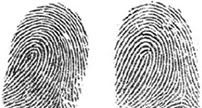US ambassador promotes "high-tech" identification.
From Canadian Press, October 19th:
"TORONTO (CP) - A United States plan to introduce a high-tech ID card that would allow residents to re-enter the country without a passport will actually speed up cross-border travel, not impede it as critics suggest, U.S. ambassador David Wilkins said Thursday.
U.S. Ambassador to Canada David Wilkins laughs as he chats prior to a breakfast speech in Vancouver, September 21, 2006. (CP/Chuck Stoody)
In response to concerns about the original scheme, which would have required American citizens to carry a passport whenever they left the country, the U.S. is now proposing a high-tech, wallet-sized identity card residents can use when returning home from Canada.
The new U.S. passport cards are part of the Western Hemisphere Travel Initiative, which by 2009 will require all Canadians and Americans to show a passport or other secure form of identification while crossing the border.
Business groups on both sides of the border have long warned that making such identification mandatory will deter cross-border travel.
Not so, said Wilkins, who urged a business audience at the Toronto Board of Trade to take the U.S. decision to delay implementation of the requirement from January 2008 to June 2009 as a show of good faith.
"I think it's important for Canada to understand that your concerns were heard loud and clear and, in my opinion, those concerns were honoured by the delay," Wilkins said.
He acknowledged, however, that the system could be put into place earlier if ready ahead of schedule.
Some 70 million Americans, about 23 per cent, now have passports, and a further 225,000 are being issued each week, Wilkins said.
Critics also fear that if a new card is implemented before all the kinks are straightened out, border delays and headaches will just get worse.
But the card's technology will take care of that, Wilkins said. Information on the card will be transmitted over a radio frequency as the traveller approaches the border checkpoint, so all the border guard has to do is verify the identity of the traveller, he explained.
The card uses the same technology already in place with the existing NEXUS and FAST expedited border control services, which have special lanes for frequent visitors and commercial trucks.
"By the time you pull up they'll have checked you out," Wilkins said. The system will be faster than using passports, since border guards won't have to flip through and stamp pages, he added.
"Once we have a unified system I truly believe...we'll have a faster, smarter, more efficient border than ever before and it will ultimately facilitate trade and travel, not encumber it."
Canada has yet to decide whether it will follow suit with a similar pass card system. Wilkins said he's not putting any pressure on Canadian authorities to make a decision. "That obviously is a decision for Canada to make and Canada alone to make."
The pass cards cost US$20 plus a $25 execution fee for adult travellers and are valid for 10 years."
"TORONTO (CP) - A United States plan to introduce a high-tech ID card that would allow residents to re-enter the country without a passport will actually speed up cross-border travel, not impede it as critics suggest, U.S. ambassador David Wilkins said Thursday.
U.S. Ambassador to Canada David Wilkins laughs as he chats prior to a breakfast speech in Vancouver, September 21, 2006. (CP/Chuck Stoody)
In response to concerns about the original scheme, which would have required American citizens to carry a passport whenever they left the country, the U.S. is now proposing a high-tech, wallet-sized identity card residents can use when returning home from Canada.
The new U.S. passport cards are part of the Western Hemisphere Travel Initiative, which by 2009 will require all Canadians and Americans to show a passport or other secure form of identification while crossing the border.
Business groups on both sides of the border have long warned that making such identification mandatory will deter cross-border travel.
Not so, said Wilkins, who urged a business audience at the Toronto Board of Trade to take the U.S. decision to delay implementation of the requirement from January 2008 to June 2009 as a show of good faith.
"I think it's important for Canada to understand that your concerns were heard loud and clear and, in my opinion, those concerns were honoured by the delay," Wilkins said.
He acknowledged, however, that the system could be put into place earlier if ready ahead of schedule.
Some 70 million Americans, about 23 per cent, now have passports, and a further 225,000 are being issued each week, Wilkins said.
Critics also fear that if a new card is implemented before all the kinks are straightened out, border delays and headaches will just get worse.
But the card's technology will take care of that, Wilkins said. Information on the card will be transmitted over a radio frequency as the traveller approaches the border checkpoint, so all the border guard has to do is verify the identity of the traveller, he explained.
The card uses the same technology already in place with the existing NEXUS and FAST expedited border control services, which have special lanes for frequent visitors and commercial trucks.
"By the time you pull up they'll have checked you out," Wilkins said. The system will be faster than using passports, since border guards won't have to flip through and stamp pages, he added.
"Once we have a unified system I truly believe...we'll have a faster, smarter, more efficient border than ever before and it will ultimately facilitate trade and travel, not encumber it."
Canada has yet to decide whether it will follow suit with a similar pass card system. Wilkins said he's not putting any pressure on Canadian authorities to make a decision. "That obviously is a decision for Canada to make and Canada alone to make."
The pass cards cost US$20 plus a $25 execution fee for adult travellers and are valid for 10 years."

